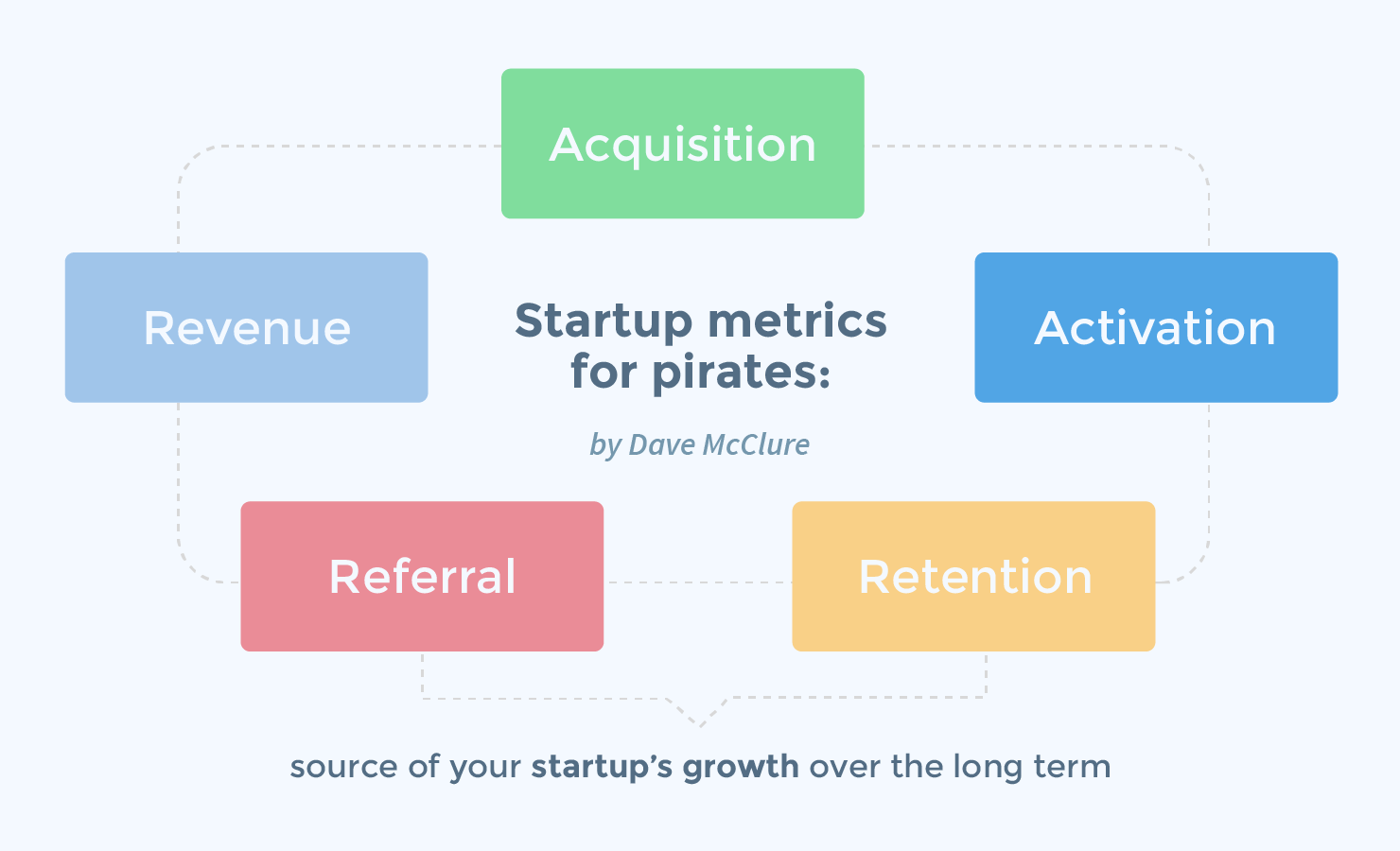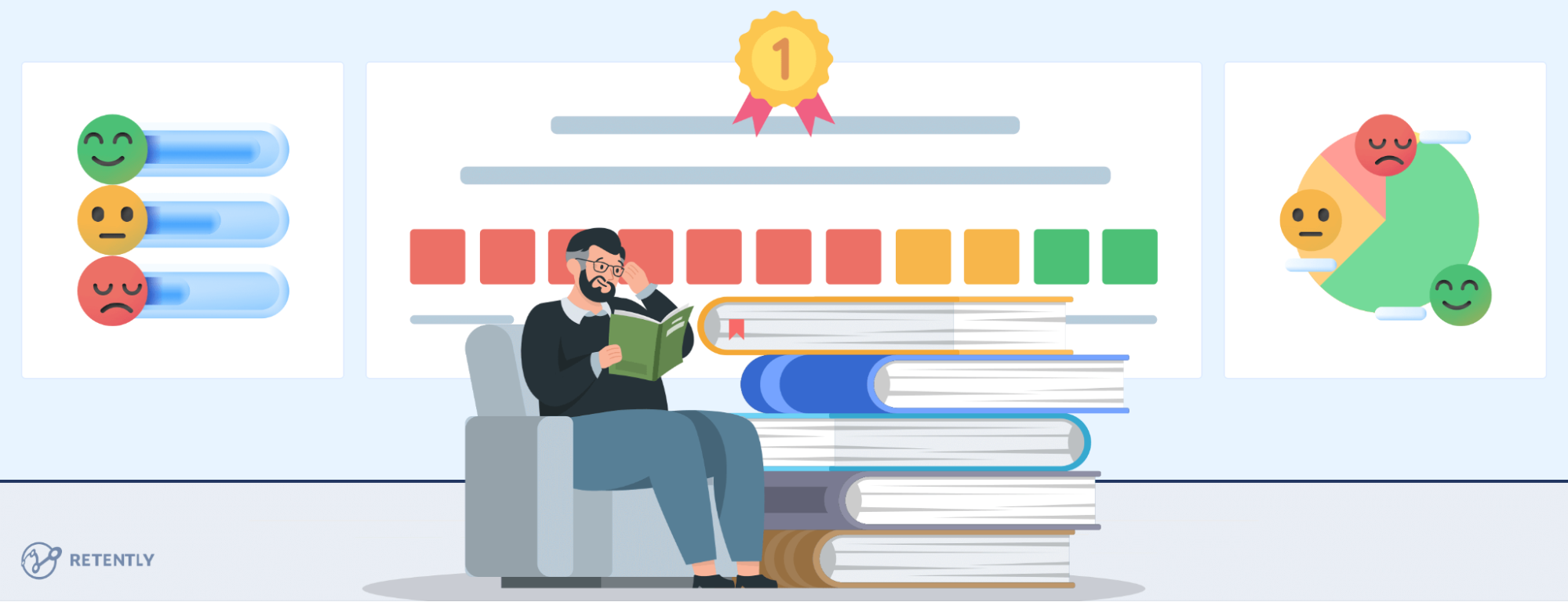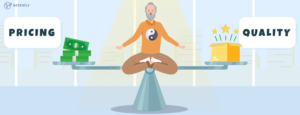Table of Contents
As a Customer Success Manager, Net Promoter Score® is the most important metric you have access to for retaining customers. As a Growth Hacker, it’s an even more valuable metric for fueling your business’ short and long-term growth.
Pay close attention to the second term: long-term growth. Since NPS® measures the level of satisfaction and loyalty your customers have for your product, it’s the key difference between a hockey stick-style growth chart and temporary growth followed by a gradual decline.
Smart growth hackers like Sachin Rekhi (former Director of Product Management at LinkedIn) have made NPS a key part of their retention and growth strategies. Here’s why (and how) you should, too:
A Great Product Is the Ultimate Growth Hack
As Kyle Wild of Keen.io says, “product is the ultimate growth hack.” Many startups put all of their attention on customer acquisition while spending less time than they could to create a great product.
The end result is a product that attracts customers in the short term but ultimately fails to keep them. The quality of a product versus the customer’s expectation is the most important factor in determining retention. Underdeliver and you’ll lose customers even faster than you earn them.
No amount of growth will help your business develop if you’re losing customers because of poor product or service quality. Since retention is fueled by product quality, keeping track of it is by far the most important aspect of growth.
Net Promoter Score is the single metric you can rely on to learn how customers really feel about your product. It’s also a metric that you can use to identify any weaknesses that could hurt your product’s long-term growth.
The better your product is, and the more closely it matches customer expectations, the easier it is to retain customers and fuel growth. As the ultimate metric for assessing customer loyalty, NPS is a great shortcut to understanding how satisfied your customers are with your product.
Retention and Referrals Drive Growth, Not Acquisition
While online marketing gurus might tell you otherwise, there’s a vast difference between user acquisition and growth. Acquiring a customer doesn’t guarantee you’ll retain him, meaning there’s no direct correlation between acquisition and growth.
Customer acquisition is more glamorous than retention, so it gets far more attention from online marketers and growth experts. This is likely because it’s far easier to showcase acquisition in an investor-friendly graph than it is to show a great retention rate.
Despite this, retention is far more important for increasing your company’s revenue for a longer period than acquisition alone. Keeping customers for longer creates two huge benefits for your business’s ability to grow:
- First, you generate revenue from each customer over a longer time period, especially if your product is monetized via a monthly fee or advertising.
- Second, the longer customers stick with you, the more likely they are to refer friends and colleagues, producing long-term, organic growth for your business.
Dave McClure’s Startup Metrics for Pirates breaks down startup growth into five super-metrics: Acquisition, Activation, Retention, Referral, and Revenue. The first two items are prerequisites for; retention and referrals are the sources of your startup’s growth over the long term.

Remember, it’s far cheaper to retain a customer than to acquire a new one. It’s also way cheaper to win over a customer through word-of-mouth than it is to market aggressively, whether through paid advertising or direct sales. When you use NPS for your startup, it greatly helps do both.
NPS Puts You in a Retention Mindset
Focus on growth metrics like your conversion rate or average cost per acquisition and it will be easier to build your marketing around acquisition, not growth.
Focus on Net Promoter Score and it will be easier to get into a retention mindset, where keeping your customers is just as important as acquiring them in the first place. This shift in priorities has an immense effect on your ability to keep making your product better.
Instead of asking yourself, “How can I acquire more customers?”, you’ll start thinking how you can retain more customers.
It also affects your users. Since NPS measures the enthusiasm people have for your product and groups them into Detractors, Passives, and Promoters based on their feedback, it’s an excellent tool for identifying and mobilizing customers who want to market for you.
When a customer responds with a score of 9-10, they’re not just indicating that they’re satisfied with your product — they’re stating that they’re actively interested in promoting it. Mobilize these brand advocates and you’ll get a valuable asset for expanding your growth.
There are several ways to put your Promoters to work. You can send a follow-up email to your Promoters with an incentive for referring their friends and colleagues. You could also encourage them to talk about your product or business on social media.
You can ask them to write or film a public product review, reach out to their customers (if you offer a B2B product or service) or link back to your website. Depending on your goals, you could benefit from several of these potential actions.
Develop a process for following up with your Promoters and you’ll get more than just information from NPS – you’ll also get real, measurable value from your most enthusiastic customers.
NPS Closely Correlates With Strong Word-Of-Mouth
Net Promoter Score correlates very closely with the word-of-mouth. This can be good or bad: a high NPS is closely linked to positive word-of-mouth from Promoters, while a low NPS could be an indicator that your product is generating negative word-of-mouth that hurts acquisition.
This is particularly important if your business is small. Research from Verizon shows that up to 85% of new customers acquired by small businesses result from word of mouth. Focus on maintaining a high NPS and you could open up a valuable source of new customers.
Genuine referrals and recommendations from customers will outperform any share button or social media campaign over the long term. Focus on gradual improvement to your product to increase your NPS and you’ll develop the type of word-of-mouth that creates exponential growth.
NPS-Focused Growth Hacking Is Sustainable
While it’s great to have a viral product, viral buzz can only be sustained for so long before users lose interest and move on to the next big thing. Likewise, paid advertising and acquisition works while you have the budget, but fades quickly if and when you don’t.
As your product’s customer base expands and the low-hanging fruit disappears, acquiring each new customer costs more than the last. When your growth model is acquisition-focused, you’re forced to spend more cash on user acquisition the bigger your business grows.
NPS-focused growth, on the other hand, grows in scale and shrinks in cost the larger your user base becomes, as more users become Promoters and start recommending your product to their friends, colleagues, and acquaintances.
This results in the same hockey stick-like growth of viral user acquisition, but without the costs that exponential growth typically requires. It’s a slower, more deliberate form of growth hacking, but in the long term, it’s both more sustainable and more effective.
Put NPS to Work and Grow Your Business
NPS isn’t just a backward-looking metric that tells you how you’ve performed in the past. It’s forward-looking. A high NPS indicates a healthy future pipeline of opportunity, driven by customer loyalty and referrals. When customers love your brand enough to recommend it to others, you’re essentially creating a chain reaction of organic growth.
Use Net Promoter Score to your advantage and create more sustainable growth for your business — one that lasts for the long term, not just as long as you can afford to fund it.
Retently lets you track and analyze customer satisfaction using a simple one-question survey sent to your customers. Learn more about how Retently works and start your free 7-day trial to put NPS to work and fuel your business’s growth.






























 Alex Bitca
Alex Bitca 

 Greg Raileanu
Greg Raileanu 


 Christina Sol
Christina Sol 